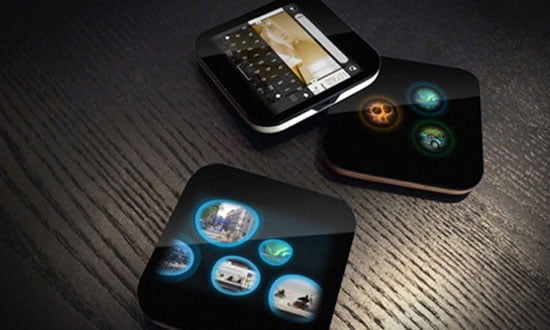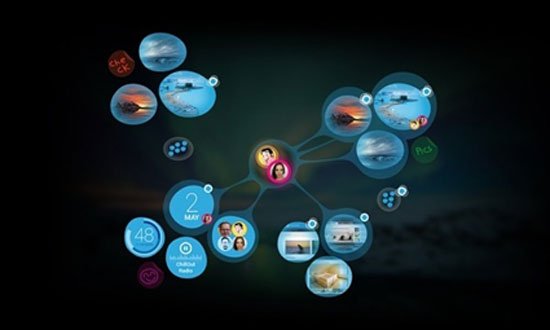
We don’t do advertisements, so the mention of Solu has nothing to do with the certainty that it’s the next popular gadget on the market, but rather the opposite: it appears as an interesting novelty (as much as one can talk about novelties while quantum computers are looming…) but it might also sink commercially.
Solu (means: “organic cell”) is a Finnish invention, so everyone can easily think that in the techno-stuff circuits of the particular Finnish state, after the loss of the Nokia kingdom, they don’t cry, nor curse their misfortune; they are looking for a new grip on the global technological establishment. Solu, the size of a cigarette pack “cassette”, appears to resemble a smartphone but it is a computer. Its operating system is a robust transformation of Android, but its operational “philosophy” differs greatly from what we know as a PC. It “organically” interacts with cloud computing, “receives commands” through various gestures (apart from the “touches” of smartphones) and, mainly, it does not categorize content in the classical form of “folders”. There is nothing of the familiar “desktop” surface that Apple established and became commonplace subsequently, but something like what the photograph on the left shows: a (supposed) representation of the associations our brain makes. Obviously (;) for Solu to work, one does not need to buy (or steal) any software: with a monthly subscription (of the order of 20 dollars per month) one has access to any program they want.

Solu (whose development was funded by crowdfunding) is not yet ready for the market. And you might never see it. A feasible innovation is not necessarily a commercial success, especially in the capitalist competitive world. Cloud computing must win the “privacy bet” (or, more accurately, whatever remains of it), and Solu must simultaneously win over the smartphone and tablet audience by overcoming their users’ habits. All of this against established mega-corporations (which, of course, won’t remain such forever).
